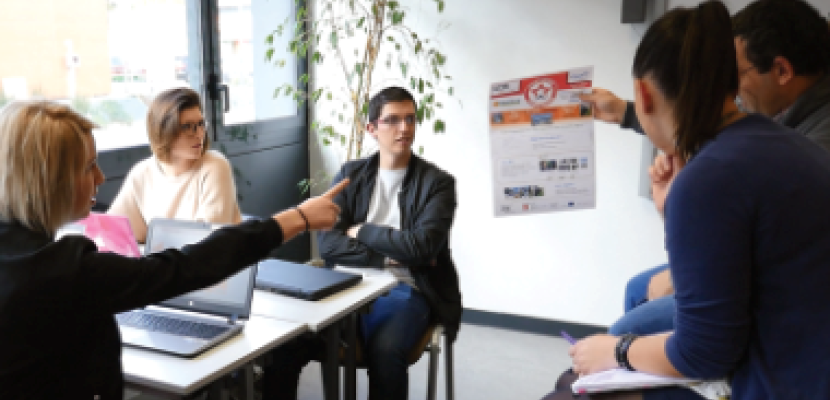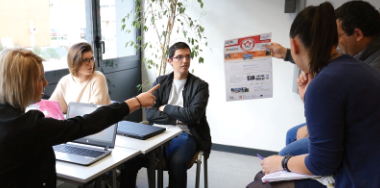
Challenges & Competencies

About this good practice
Very often traditional SMEs believe they cannot innovate or cannot integrate digital solutions in their process / communication / organisation, as these tools are more dedicated to bigger companies. In addition, they are not aware of skills that are available in schools of their area, fact that is shared by students that do not know local companies and leave the area for their internships or after their studies.
The “Challenge & Competencies” aims to gather students, with their innovative and creativity spirit, and local SMEs, in order to initiate new and mainly digital projects in the companies.
With no constraints forced on them, during the week of the Challenge & Competencies, in 5-people teams, the students will suggest ideas and develop an innovative and digital project up to the mock-up stage (a kind of POC of their main idea). Their challenge is to use their skills, the skills they are learning at school, to solve companies’ issues or concerns.
Local companies will then get a first hint on the type of project / product they could implement.
After the end of the Challenge, part of the SMEs will have the student projects developed by students within internships or by companies into a ‘real’ product / service.
The main stakeholders and beneficiaries of this practice are :
- Local high schools
- Students from these high schools
- Local companies
- Business support organisation or creativity specialists
Expert opinion
Resources needed
For 1 challenge with 1 school (5 teams,20 to 25 stud.)
Human resources:
- 13.5 staff days for the organisation body
- 4 days for the school staff
Financial resources:
- 1 350 € for the organisation body (Fundings coming from local uthorities)
- 1 150 € for the school (from the school’s own funds)
Evidence of success
Since 2011,
13 editions
39 sessions with 9 different schools
954 students within 206 teams
165 companies
90 % of companies are satisfied (figures from 2017 to 2022 editions)
92 % of companies are ready to recommend the Challenge (figures from 2017 to 2022 editions)
57,6 % of companies carry on to develop at least 1 project
Potential for learning or transfer
This practice is easy to duplicate to other regions and is both beneficial for companies and for schools.
An online platform already exists to manage the challenges


